Kids & Teens
For kids and teens, weight bias and weight stigma is often experienced as teasing, bullying, and victimization. Young people who have a higher body weight may face multiple sources of weight bias in the school setting. This can include physical bullying, verbal teasing (name calling or derogatory remarks), cyber bullying, and relational victimization (being ignored, excluded from activities, or being targeted for rumors). Many young people face these forms of weight stigma every day, especially in school - not just harassment by fellow students, but also biased attitudes and actions from teachers and school health care workers. For example, Rudd Center research has found that weight-based bullying is one of the most common forms of bullying reported by youth, and that some teachers have lower expectations for students who have higher body weight compared to "normal weight" students in many areas, including social, physical, reasoning, and cooperation skills. Thus, efforts to combat weight bias and weight stigma in the school setting must include initiatives to educate both students and teachers.
Furthermore, family members can sometimes contribute to the weight bias that youth experience. Our research has found that youth with higher body weight report experiencing weight-based teasing from their parents and other family members, and these experiences can have lasting health consequences.
Together, all these sources of weight bias can have a major impact on young people’s psychological, social, and physical health. On an emotional level, being teased or bullied about weight can lead to poor body image, low self-esteem, depression, and suicidal thoughts. These experiences also have negative consequences for physical health, as young people who are teased or bullied about their weight are more likely to engage in unhealthy weight control behaviors, binge eating, less physical activity, and are more likely to gain weight over time.
Our research shows that there are a number of ways that students, teachers, and parents can provide support to young people who are being teased or bullied about weight. For more information on these topics, please see our resources for parents and teens.
Resources
For Kids
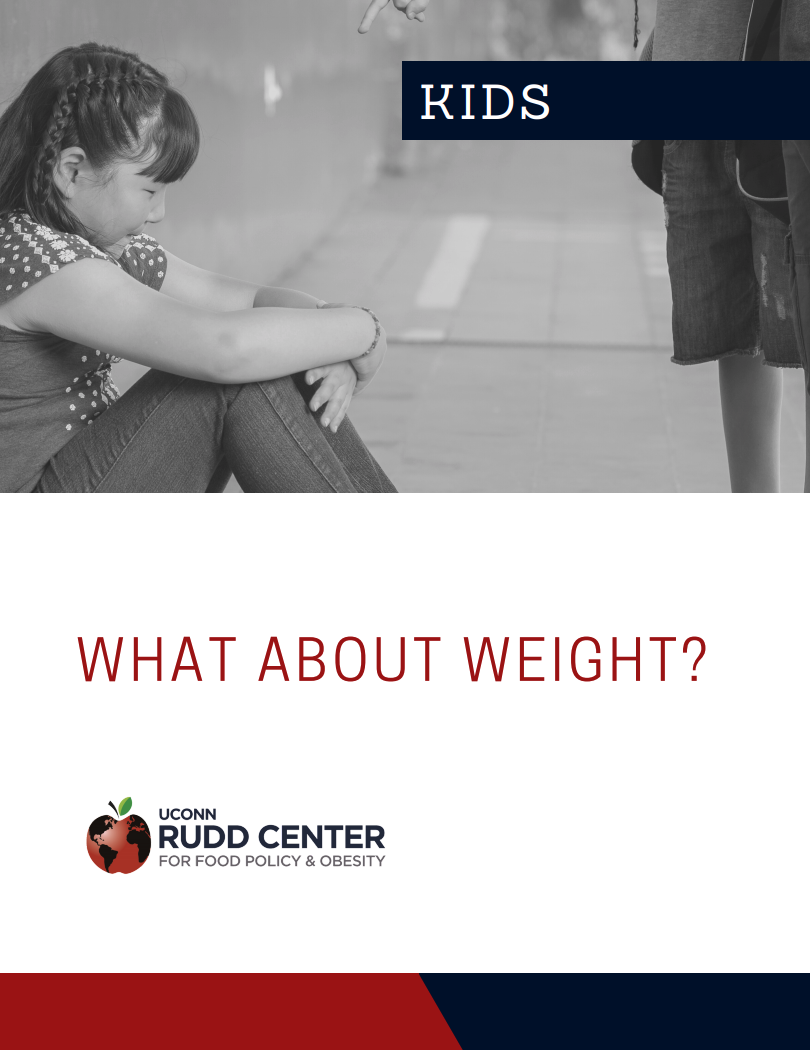 |
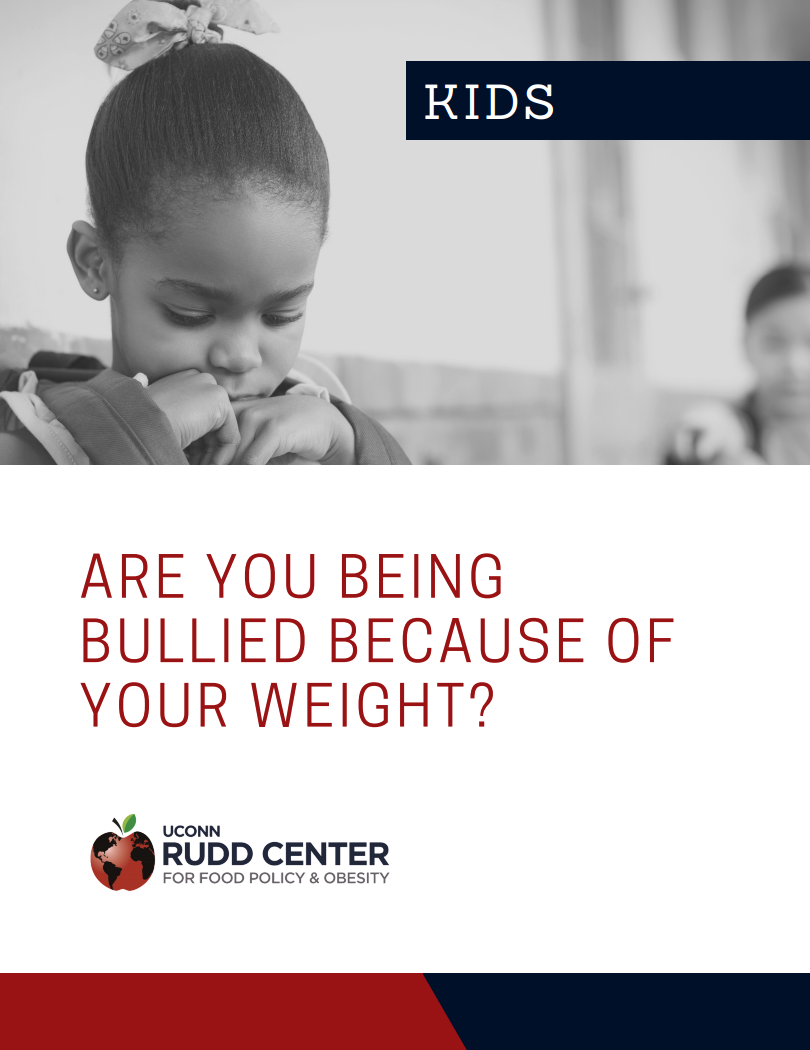 |
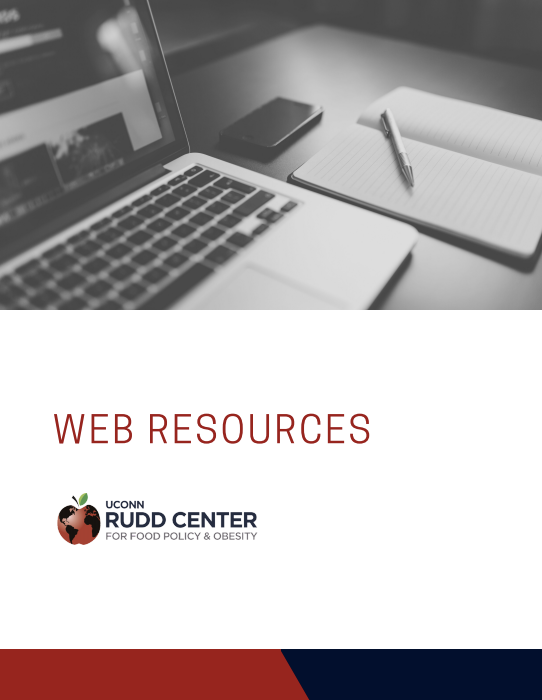 |
A guide to bullying and cyberbullying: Whether it's overtly aggressive or not, bullying is detrimental to students of all ages. The various forms that bullying can take — verbal, social, physical, and cyber — present different challenges, but all are ultimately harmful. This resource from onlineschools.org explains in detail what cyberbullying is, what its effects are, and how to prevent it.
For Teenagers
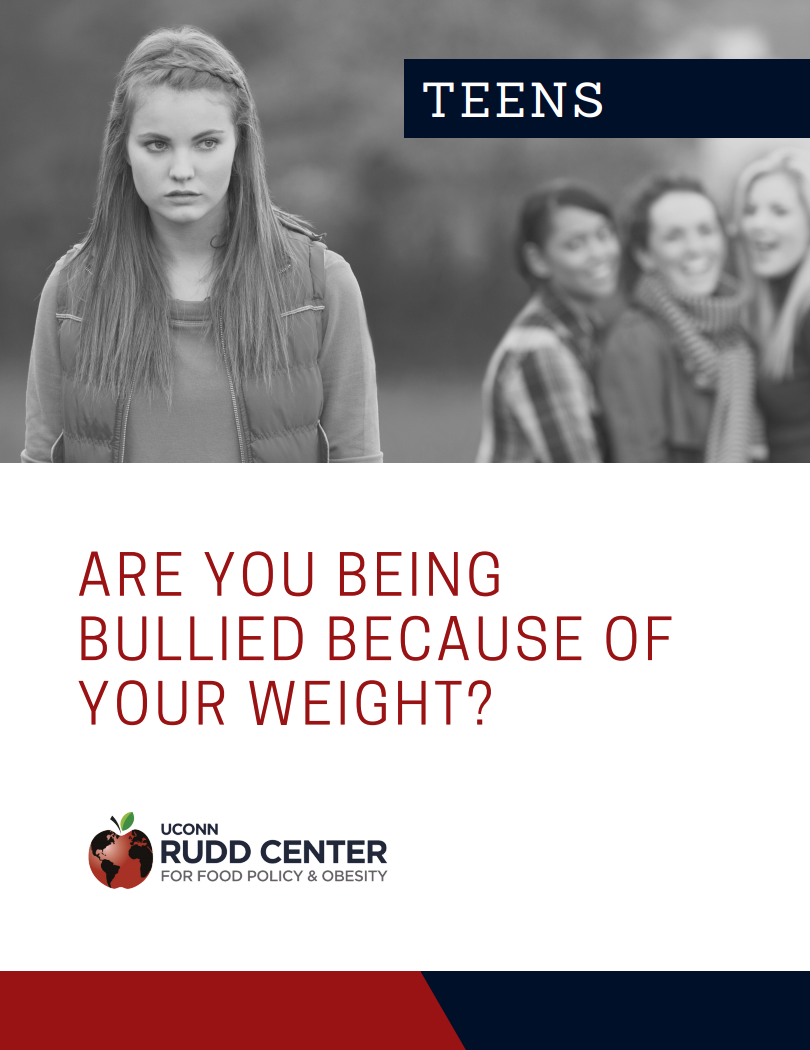 |
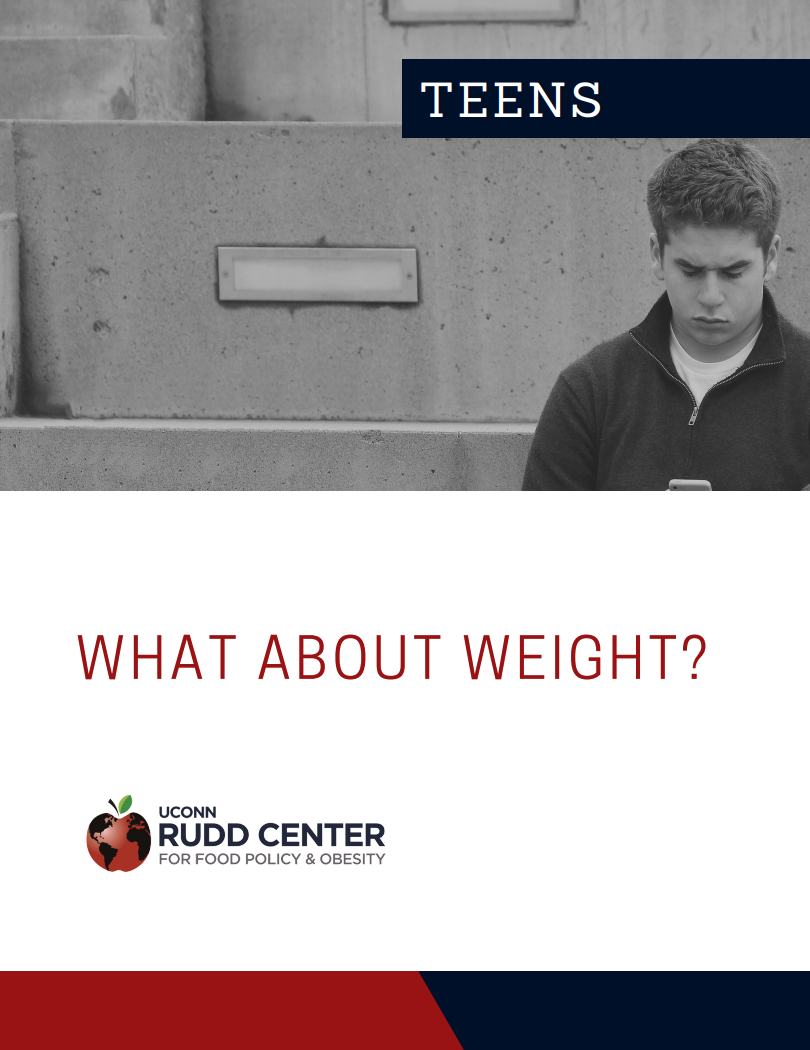 |
 |
A guide to bullying and cyberbullying: Whether it's overtly aggressive or not, bullying is detrimental to students of all ages. The various forms that bullying can take — verbal, social, physical, and cyber — present different challenges, but all are ultimately harmful. This resource from onlineschools.org explains in detail what cyberbullying is, what its effects are, and how to prevent it.
Video: Weight Prejudice Myths & Facts
The Rudd Center has created this video to increase youth awareness about weight bias and weight stigma, and to highlight strategies to help combat this rapidly growing problem for overweight adolescents. This video shows the story of Bene, a girl who is teased and victimized about her weight at school.
In response to the daily teasing she confronts, Bene decides to educate her classmates about weight bias by making her own under-cover video to address the weight stigma that overweight youth encounter. Presented by Rebecca Puhl, PhD, Marlene Schwartz, PhD and Karen Dorsey, MD.
Video: Weight Bias at Home & School
The Rudd Center created this video to help parents and teachers understand the severity and impacts of weight bias and weight stigma in school and at home and to present strategies to help combat this rapidly growing problem for overweight teens and pre-adolescents. This video, hosted by celebrity and activist Emme and featuring Rudd Center experts including Dr. Rebecca Puhl and Dr. Kelly Brownell, uses expert commentary and dramatic representation to address the obstacles that overweight and obese youth encounter with weight bias.